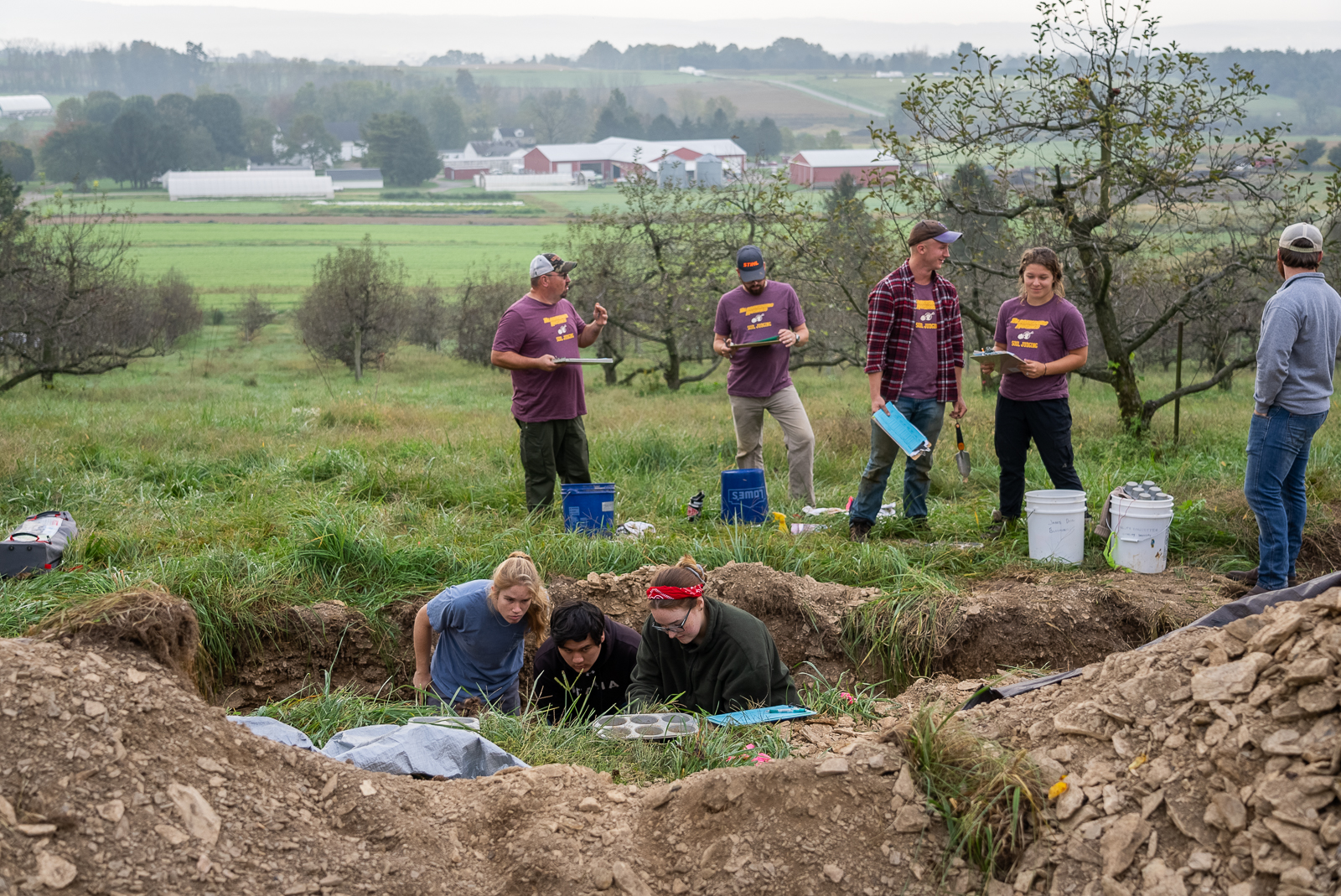
Oct 19, 2021
University of Rhode Island students win soil-judging contest held at Rodale Institute
Rodale Institute, Kutztown, Pa., was the site for the 2021 Northeast Regional Soil Judging Contest on Friday, October 15, 2021, hosted by the Delaware Valley University Soil Judging Team.
Sixty-three students from 8 colleges throughout the Northeast competed in this year’s contest, held at lands owned by the Rodale Institute. The students saw saw a wide variety of different soils in materials that developed from Pre-Illinoian glacial till as well as residual/colluvial soils that formed in shale and limestone.
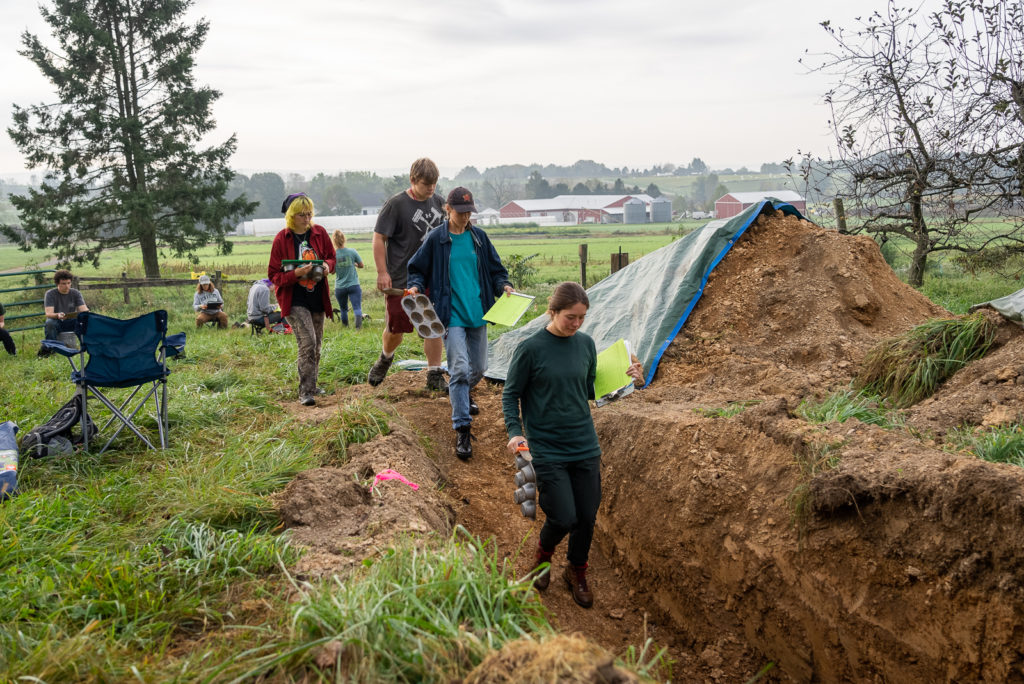
Credit: Rodale Institute
Overall, the University of Rhode Island won this year’s contest, edging out Delaware Valley University, followed by the University of Maryland and the University of Delaware. These four schools have qualified and will advance to the Spring 2022 National Contest, hosted by the Ohio State University. The top individual finisher was Delaware Valley University’s Mitchel Johnson, followed by Braden Fleming from the University of Rhode Island, and Gabrielle Landis from Delaware Valley University.
“The Northeast Regional Soil Judging Contest is an opportunity for students from diverse scientific backgrounds to come together in an effort to better understand the wonder, awe, and science of soil, and the role soil plays in human and planetary health,” said Jeff Tkach, Chief Impact Officer of Rodale Institute. “Students that are participating in this year’s contest will go on to pursue careers in environmental science, regenerative agriculture, agroforestry, and many other environmental disciplines that will play a role in healing people and the planet. Rodale Institute, a global center of excellence in regenerative organic agriculture, is thrilled to host these students and provide a backdrop for this educational opportunity.”
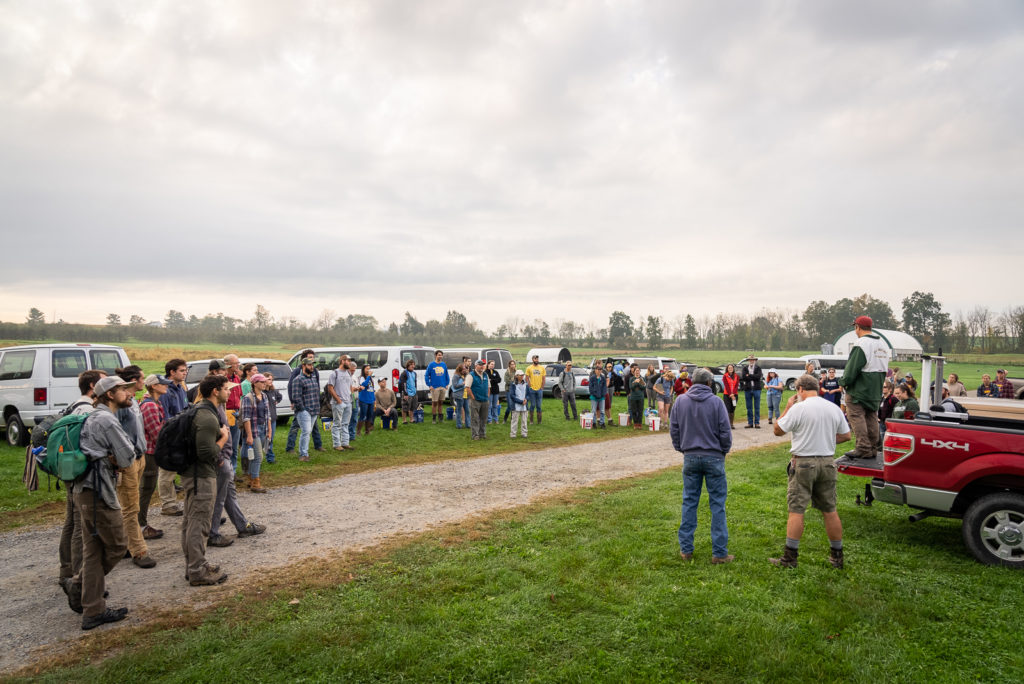
Credit: Rodale Institute
“This was the first time the contest has been held on a certified organic site,” said Jeff Moyer, CEO of Rodale Institute. “Most of the top agricultural schools in the country have a soil judging team, comprised of the soil science students. This is a great opportunity to talk to the future experts of our soil about the benefits of regenerative organic agricultural production on the impacts of soil health.”
“We were excited to be teaming this year with the Rodale Institute, one of the foundational leaders of the organic agriculture movement,” said Steve Dadio, a Delaware Valley University faculty member who teaches the soil judging students. “When thinking about our natural resources, we breathe the air, we see and eat the plants, we drink the water, yet we walk on the soil. The students learn valuable skills in how to describe soils and gain an understanding of how soils dictate land-use, agriculturally and environmentally.”
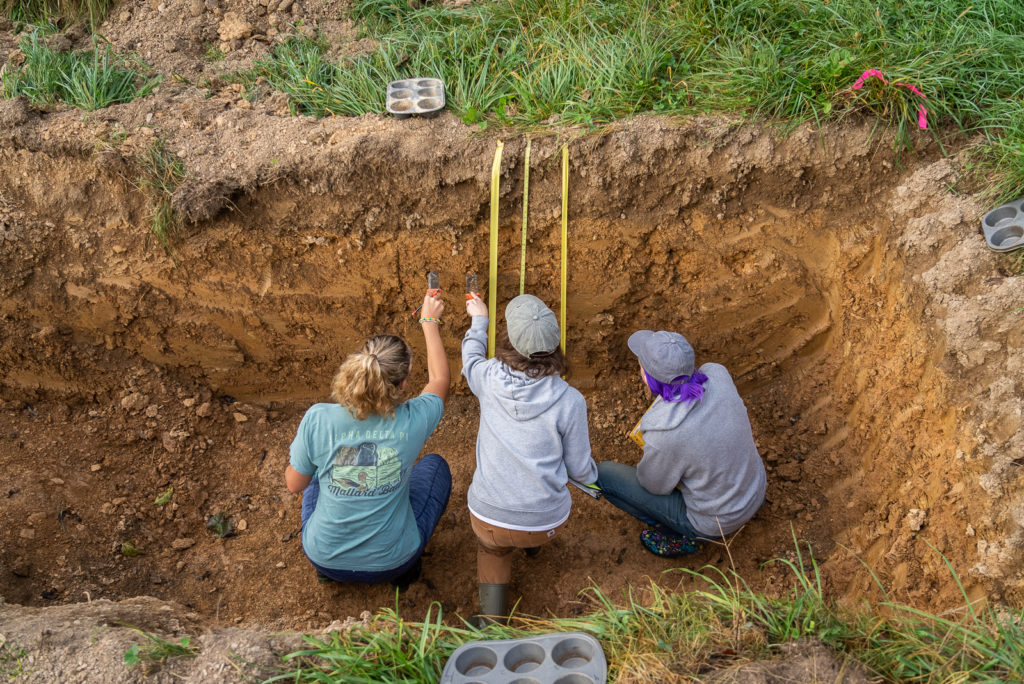
Credit: Rodale Institute
The Northeast Regional Soil Judging Contest is a contest where students learn how to describe soil morphology (e.g. color, texture, structure, rock content, tilth, etc.) and to identify critical features such as rooting depth limitations, erosion potential, hydraulic conductivity, and drainage class. From this information, the students then classify the soils and make general land-use interpretations such as suitability to build a basement, road, and determination of the land as Prime Farmland.
Soil judging competitions allow students to apply what they are learning about testing and evaluating soil by competing against students from other schools. Competitors identify, evaluate, classify and describe soil profiles and whoever has the closest classification to the judge’s profile wins. The competitions include group and individual portions. Students also get a chance to see soil from different regions of the country through competing.
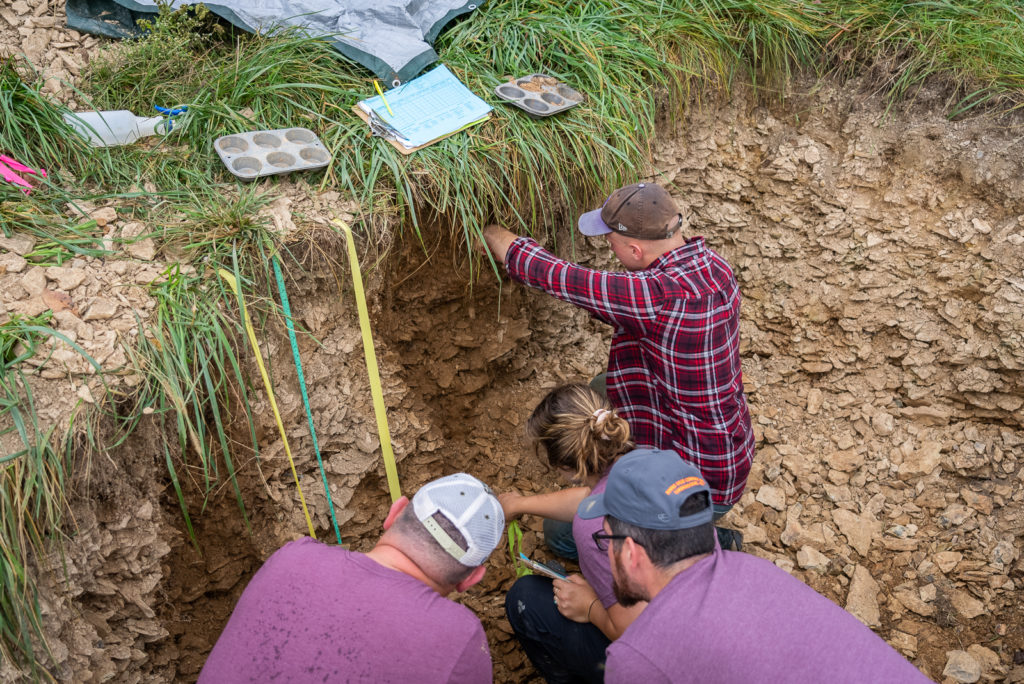
Credit: Rodale Institute
The eight schools competing this year’s Northeast Regional Soil Judging Contest include Bloomsburg University, University of Delaware, Delaware Valley University, the University of Maryland, Pennsylvania State University, the University of Pittsburgh-Johnstown, the University of Rhode Island and Stockton University.
Rodale Institute is a nonprofit research and education institution founded in 1947 by organic pioneer J.I. Rodale to study the link between healthy soil, healthy food and healthy people through regenerative organic agriculture. The Institute’s headquarters can be found on a 333-acre farm with research facilities, where it maintains field laboratories and a full complement of staff and equipment to generate scientific data.






